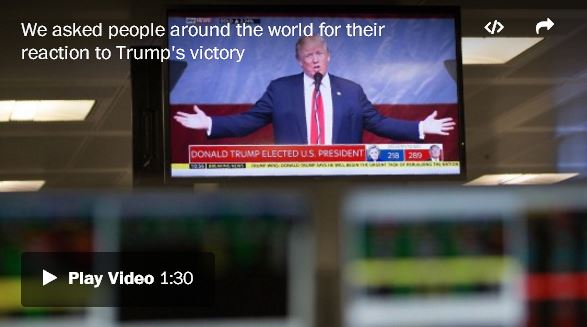Twenty-five years ago — December 1991 — communism died, the Cold War ended and the Soviet Union disappeared. It was the largest breakup of an empire in modern history and not a shot was fired. It was an event of biblical proportions that my generation thought it would never live to see. As Wordsworth famously rhapsodized (about the French Revolution), “Bliss was it in that dawn to be alive/But to be young was very heaven!”
That dawn marked the ultimate triumph of the liberal democratic idea. It promised an era of Western dominance led by a preeminent America, the world’s last remaining superpower.
And so it was for a decade as the community of democracies expanded, first into Eastern Europe and former Soviet colonies. The U.S. was so dominant that when, on Dec. 31, 1999, it gave upone of the most prized geostrategic assets on the globe — the Panama Canal — no one even noticed.
That era is over. The autocracies are back and rising; democracy is on the defensive; the U.S. is in retreat. Look no further than Aleppo. A Western-backed resistance to a local tyrant — he backed by a resurgent Russia, an expanding Iran and an array ofproxy Shiite militias — is on the brink of annihilation. Russia drops bombs; America issues statements.
[What happens if Trump keeps interfering with the free market? Look at the Soviet Union.]
What better symbol for the end of that heady liberal-democratic historical moment. The West is turning inward and going home, leaving the field to the rising authoritarians — Russia, China and Iran. In France, the conservative party’s newly nominatedpresidential contender is fashionably conservative and populist and soft on Vladimir Putin. As are several of the newer Eastern Europe democracies — Hungary, Bulgaria, even Poland — themselves showing authoritarian tendencies.
And even as Europe tires of the sanctions imposed on Russia for its rape of Ukraine, President Obama’s much-touted “isolation” of Russia has ignominiously dissolved, as our secretary of state repeatedly goes cap in hand to Russia to beg for mercy in Syria.
The European Union, the largest democratic club on Earth, could itself soon break up as Brexit-like movements spread across the continent. At the same time, its members dash with unseemly haste to reopen economic ties with a tyrannical and aggressive Iran.
As for China, the other great challenger to the post-Cold War order, the administration’s “pivot” has turned into an abject failure. The Philippines openly defected to the Chinese side. Malaysia then followed. And the rest of our Asian allies are beginning to hedge their bets. When the president of China addressed the Pacific Rim countries in Peru last month, he suggested that China was prepared to pick up the pieces of the Trans-Pacific Partnership, now abandoned by both political parties in the United States.
The West’s retreat began with Obama, who reacted to (perceived) post-9/11 overreach by abandoning Iraq, offering appeasement (“reset”) to Russia and accommodating Iran. In 2009, he refused even rhetorical support to the popular revolt against the rule of the ayatollahs.
Donald Trump wants to continue the pullback, though for entirely different reasons. Obama ordered retreat because he’s always felt the U.S. was not good enough for the world, too flawed to have earned the moral right to be the world hegemon. Trump would follow suit, disdaining allies and avoiding conflict, because the world is not good enough for us — undeserving, ungrateful, parasitic foreigners living safely under our protection and off our sacrifices. Time to look after our own American interests.
[Trump’s Carrier deal is right out of Putin’s playbook]

In Mexico, China, Russia and Israel we ask people what they think of the election of Donald J. Trump as the 45th president of the United States. (Jason Aldag/The Washington Post)
Trump’s is not a new argument. As the Cold War was ending in 1990, Jeane Kirkpatrick, the quintessential neoconservative, argued that we should now become “a normal country in a normal time.” It was time to give up the 20th-century burden of maintaining world order and of making superhuman exertions on behalf of universal values. Two generations of fighting fascism and communism were quite enough. Had we not earned a restful retirement?
At the time, I argued that we had earned it indeed, but a cruel history would not allow us to enjoy it. Repose presupposes a fantasy world in which stability is self-sustaining without the United States. It is not. We would incur not respite but chaos.
A quarter-century later, we face the same temptation, but this time under more challenging circumstances. Worldwide jihadism has been added to the fight, and we enjoy nothing like the dominance we exercised over conventional adversaries during our 1990s holiday from history.
We may choose repose, but we won’t get it.
Read more from Charles Krauthammer’s archive, follow him on Twitter or subscribe to his updates on Facebook.